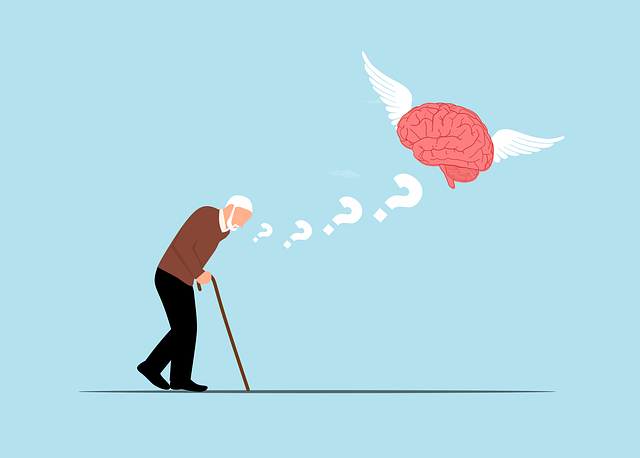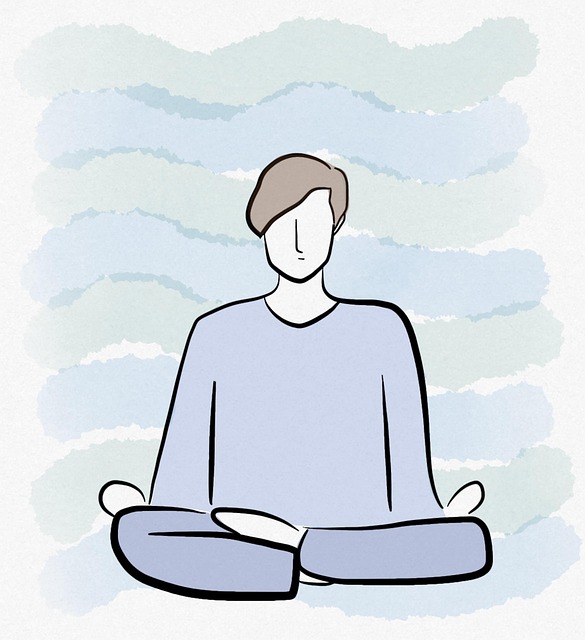Depression among young adults in Colorado Springs is a growing concern, often overlooked until it becomes severe. Recognizing subtle signs such as persistent sadness, changes in appetite and sleep patterns, fatigue, and thoughts of worthlessness is crucial. Culturally competent healthcare providers can effectively assess and treat these individuals, understanding that symptoms may manifest differently than in older people. Promoting mental wellness involves tailored self-care practices, including physical activity, balanced diets, and relaxation time. The Mental Wellness Podcast Series offers accessible resources, while Colorado Springs Young Adults Therapy provides specialized sanctuary for emotional well-being through open dialogue and innovative techniques. Lifestyle adjustments, peer support groups, and evidence-based therapies like CBT, DBT, and IPT are key to preventing and managing depression in this demographic.
Depression is a significant mental health challenge among young adults, but prevention is key. This comprehensive guide explores effective strategies to combat this elusive condition. We delve into recognizing subtle signs in peers, offering insights on how Colorado Springs Young Adults Therapy provides a supportive haven for emotional growth. Additionally, we uncover the impact of lifestyle adjustments, social connections, and professional support. By understanding these aspects, we empower young adults to navigate mental wellness. For tailored advice, consider the unique benefits of Colorado Springs Young Adults Therapy as a proactive measure against depression.
- Understanding Depression: Recognizing the Signs and Symptoms in Young Adults
- Colorado Springs Young Adults Therapy: A Safe Space for Emotional Support and Growth
- Lifestyle Adjustments: Diet, Exercise, and Sleep for Mental Well-being
- Building Social Connections: The Power of Community and Peer Support
- Professional Help: When to Seek Therapy and Available Treatment Options
Understanding Depression: Recognizing the Signs and Symptoms in Young Adults

Depression among young adults is a growing concern, yet often goes unnoticed until it becomes severe. Recognizing the subtle signs and symptoms is crucial in Colorado Springs Young Adults Therapy. Common indicators include persistent feelings of sadness, loss of interest in activities once enjoyed, changes in appetite and sleep patterns, fatigue, difficulty concentrating, and thoughts of worthlessness or suicide. These can manifest differently in young adults compared to older individuals, making it essential for healthcare providers to be culturally competent (Healthcare Provider Cultural Competency Training) in their assessment and treatment approaches.
Promoting mental wellness starts with self-care practices tailored to individual needs. Engaging in regular physical activity, maintaining a balanced diet, and allocating time for relaxation and hobbies can significantly contribute to preventing depressive episodes. Additionally, the Mental Wellness Podcast Series Production offers accessible resources for young adults to learn about managing stress, improving mood, and fostering a positive sense of self.
Colorado Springs Young Adults Therapy: A Safe Space for Emotional Support and Growth

In the vibrant city of Colorado Springs, young adults find a haven for their emotional well-being through specialized therapy services. This unique therapeutic environment caters specifically to the needs and challenges faced by young individuals, offering a safe and supportive space for growth and healing. The program emphasizes open dialogue, encouraging clients to explore and express their feelings without judgment. Through individual and group sessions, participants gain valuable tools to navigate life’s stressors, fostering self-awareness and resilience.
The Colorado Springs Young Adults Therapy goes beyond traditional talk therapy by incorporating innovative techniques tailored to modern youth. It addresses issues such as burnout prevention, promoting healthy coping mechanisms for today’s fast-paced lives. Moreover, the community outreach program implementation plays a pivotal role in connecting young adults with like-minded peers, fostering a sense of belonging and social support, which is crucial for combating feelings of isolation and low self-esteem.
Lifestyle Adjustments: Diet, Exercise, and Sleep for Mental Well-being

In the pursuit of depression prevention, lifestyle adjustments play a pivotal role in fostering mental well-being among young adults in Colorado Springs who seek therapy. Diet significantly influences mood and cognitive function; incorporating nutrient-rich foods like omega-3 fatty acids, folate, and vitamins B and D can enhance brain health and resilience against depressive episodes. Regular exercise, recommended by many Colorado Springs Young Adults Therapy centers, releases endorphins that alleviate stress and anxiety while promoting a sense of accomplishment. Adequate sleep is equally crucial; maintaining a consistent sleep schedule supports the body’s natural regulatory mechanisms for mood and emotion.
Integrating compassion cultivation practices, such as mindfulness meditation and self-compassion exercises, can complement these lifestyle adjustments. The Mental Wellness Podcast Series Production offers valuable resources for developing coping skills that empower young adults to navigate life’s challenges more effectively. By adopting a holistic approach that combines healthy habits with compassionate self-care, individuals in Colorado Springs can significantly contribute to their long-term mental wellness.
Building Social Connections: The Power of Community and Peer Support

Building social connections is a powerful tool in the arsenal against depression. Community and peer support play a crucial role in maintaining mental wellness among young adults, many of whom may be navigating challenging life transitions or seeking Colorado Springs Young Adults Therapy. The sense of belonging derived from strong social ties can provide a buffer against stress, loneliness, and isolation—all factors linked to an increased risk of depression. Peer support groups offer a safe and non-judgmental space where individuals can share experiences, gain insights, and find understanding from those who have faced similar struggles.
Engaging in Self-Awareness Exercises and Stress Management Workshops facilitated by organizations dedicated to mental wellness can further strengthen these connections. These initiatives foster open communication, encourage emotional intelligence, and equip participants with practical tools for coping with life’s challenges. By actively participating in such communities, young adults can enhance their resilience, build a supportive network, and take proactive steps towards maintaining good mental health, even during stressful times.
Professional Help: When to Seek Therapy and Available Treatment Options

For many young adults struggling with depression, seeking professional help can be a transformative step. Recognizing when to embark on this journey is essential. Therapy serves as a safe space to explore and understand the underlying causes of depression, offering effective tools for management. In Colorado Springs, specialized young adults therapy programs cater to this demographic, focusing on tailored interventions.
Available treatment options include various therapeutic approaches such as cognitive-behavioral therapy (CBT), dialectical behavior therapy (DBT), and interpersonal therapy (IPT). CBT equips individuals with coping strategies by identifying negative thought patterns, while DBT fosters emotional regulation and mindfulness. IPT helps build stronger relationships and improve communication skills. Additionally, social skills training, a component often integrated into these therapies, enhances interaction and supports mental health awareness among young adults. Empathy-building strategies within these programs encourage understanding and connection, fostering supportive environments for recovery.
Depression is a serious yet treatable condition, especially when young adults have access to tailored support. By recognizing the signs and understanding the various prevention strategies, such as engaging in lifestyle adjustments, building social connections, and seeking professional help like Colorado Springs Young Adults Therapy, individuals can take proactive steps towards better mental health. Incorporating these practices into daily life can foster resilience and create a brighter future, ensuring young adults have the tools to navigate and overcome challenges effectively.














